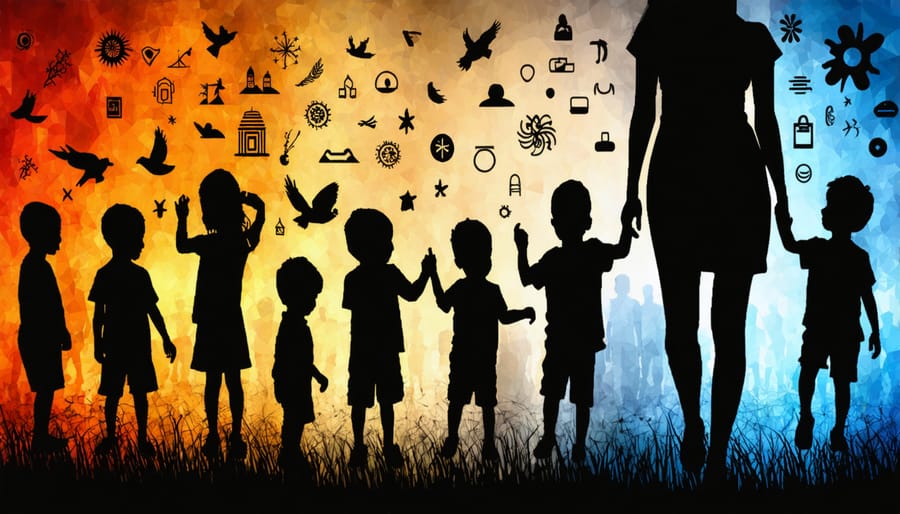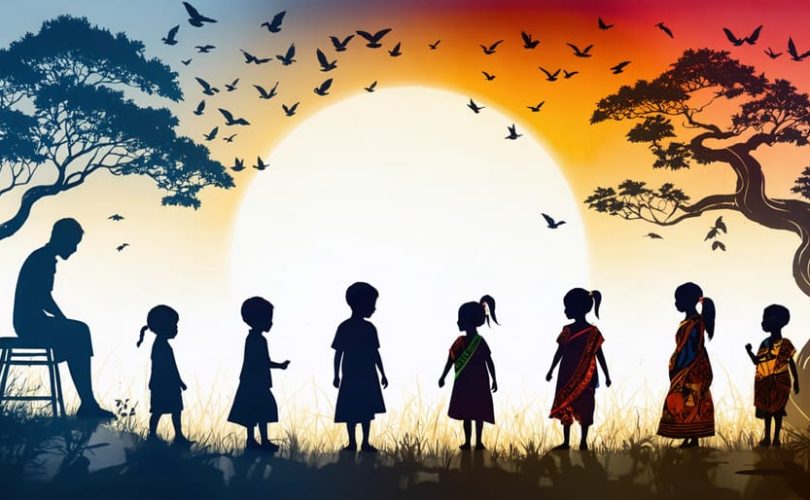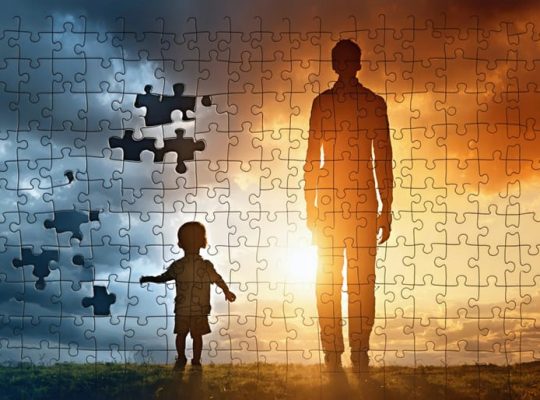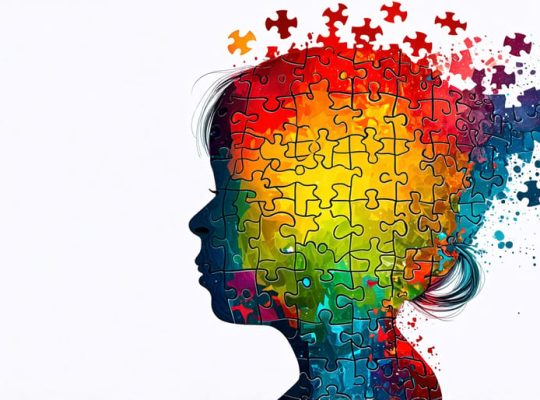The intricate connection between childhood trauma and schizophrenia reveals a complex interplay of psychological, biological, and social factors that shape mental health outcomes. Research consistently shows how childhood trauma shapes adult lives, particularly in the development of severe mental health conditions like schizophrenia. Studies indicate that individuals who experience early-life trauma face up to three times higher risk of developing psychotic symptoms later in life.
Understanding this relationship requires a culturally-sensitive lens, as trauma manifestations and support systems vary significantly across different communities. For families and healthcare providers, recognizing these early warning signs and understanding cultural contexts can make a crucial difference in prevention and early intervention strategies. This knowledge empowers communities to create protective environments that support vulnerable children while respecting their unique cultural backgrounds.
Recent advances in trauma-informed care have revolutionized our approach to mental health support, emphasizing the need for comprehensive, culturally-appropriate interventions that address both immediate trauma responses and long-term mental health outcomes. By acknowledging this connection, we open doors to more effective, compassionate, and culturally-responsive treatment approaches that can help break the cycle of trauma and reduce the risk of schizophrenia development.
Understanding the Link Between Childhood Trauma and Schizophrenia
Types of Childhood Trauma and Their Impact
Research has shown that various types of childhood trauma and mental health outcomes are closely interconnected. Children may experience different forms of trauma, each carrying its own set of challenges and potential long-term effects.
Physical abuse, including hitting or severe punishment, can lead to both emotional and physiological changes in a child’s developing brain. Sexual abuse, particularly devastating for young minds, often results in deep-seated trust issues and heightened anxiety. Emotional abuse, such as constant criticism or rejection, may damage a child’s self-worth and ability to form healthy relationships.
Neglect, though less visible, can be equally harmful. When children don’t receive adequate care, nutrition, or emotional support, their brain development and stress-response systems may be significantly impacted. Witnessing domestic violence or experiencing parental separation can create lasting feelings of insecurity and fear.
Environmental trauma, such as living in unsafe neighborhoods or experiencing natural disasters, can also leave lasting impressions. School-related trauma, including severe bullying or social isolation, may affect a child’s social development and academic performance.
Dr. Sarah Chen, a child psychiatrist, explains: “Each child processes trauma differently. What might severely affect one child might be less impactful for another. This is why individualized support and early intervention are crucial.”
Understanding these various forms of trauma helps caregivers and professionals provide more effective, targeted support for vulnerable children. Early recognition and intervention can significantly improve outcomes and help build resilience in affected young people.
The Role of Cultural Background in Trauma Experience
Cultural background plays a significant role in how children experience, process, and express trauma. Dr. Maria Rodriguez, a cultural psychiatrist, explains, “What might be considered traumatic in one culture may be viewed differently in another. These cultural differences can greatly impact how childhood trauma manifests and potentially influences the development of mental health conditions like schizophrenia.”
Different cultures have varying views on mental health, family dynamics, and seeking help. For instance, in some communities, mental health challenges are viewed through a spiritual lens, while others approach them from a medical perspective. These cultural beliefs can affect how families recognize and respond to both trauma and early signs of schizophrenia.
Sarah Chen, a trauma-informed therapist, shares her experience: “I’ve worked with families from various cultural backgrounds, and I’ve observed how cultural values influence their approach to healing. Some cultures emphasize community support and traditional healing practices, while others prefer individual therapy and medical interventions.”
Cultural factors also impact how children communicate their distress. In some cultures, children may express trauma through physical symptoms rather than emotional ones. Understanding these cultural nuances is crucial for healthcare providers to offer effective, culturally-sensitive support.
It’s essential for mental health professionals to practice cultural humility and adapt their approaches accordingly. This might include incorporating traditional healing practices when appropriate, involving extended family members in the treatment process, or understanding cultural taboos around mental health discussions.
Parents and caregivers should feel empowered to share their cultural perspectives with healthcare providers, ensuring their child’s treatment plan respects and integrates their cultural values and beliefs.

Cultural Considerations in Trauma Assessment

Cultural Beliefs and Mental Health Stigma
Cultural beliefs and attitudes toward mental health vary significantly across different communities, profoundly affecting how families understand and respond to both childhood trauma and schizophrenia. In some cultures, mental health challenges may be viewed through a spiritual or religious lens, while others might attribute them to family dynamics or environmental factors.
Dr. Maria Chen, a cultural psychiatrist, explains, “What one community sees as a mental health condition requiring medical intervention, another might view as a spiritual experience or family matter. This diversity in perspectives affects how families seek help and support their children.”
These cultural differences can create barriers to accessing mental health services, particularly when families feel misunderstood by healthcare providers. Research shows that cultural sensitivity in crisis care significantly improves treatment outcomes and family engagement.
Sarah Martinez, a family therapist, shares, “I’ve worked with families who initially hesitated to discuss trauma or seek help due to cultural stigma. When we approach these conversations with respect for their cultural beliefs and values, they’re more likely to engage in treatment and support their child’s healing journey.”
Understanding and respecting these cultural perspectives while gently addressing harmful stigmas is crucial for healthcare providers and support systems working with affected children and their families.
Cultural-Specific Trauma Manifestations
Trauma manifestations can vary significantly across different cultural contexts, influencing how childhood trauma may contribute to schizophrenia symptoms. For instance, in many Asian cultures, trauma might be expressed through physical complaints like headaches or stomach pain rather than emotional distress. This phenomenon, known as somatization, is considered a culturally acceptable way of communicating distress.
In some Indigenous communities, trauma responses might be interpreted through spiritual or ancestral frameworks, where experiences that Western medicine might label as psychotic symptoms are understood as meaningful spiritual messages or connections. Similarly, in many African and Middle Eastern cultures, expressions of trauma might focus more on family and community impact rather than individual experiences.
Latino cultures often describe anxiety-related trauma symptoms using terms like “nervios” or “ataque de nervios,” which combine both physical and emotional experiences. These cultural interpretations can significantly impact how symptoms are reported and understood by healthcare providers.
Understanding these cultural differences is crucial for proper diagnosis and treatment. What might appear as schizophrenia symptoms in one cultural context could be a culturally-specific trauma response in another. Healthcare providers need to work closely with families and cultural mediators to ensure accurate assessment and culturally-appropriate support strategies.
Remember that within each culture, individual experiences may vary, and it’s essential to approach each case with cultural humility and openness to different interpretations of trauma and healing.

Supporting Children Through Culturally-Sensitive Care
Building Cultural Competence in Treatment
Cultural competence is essential when addressing schizophrenia and childhood trauma, as different communities may have varying beliefs about mental health and healing. Healthcare providers must recognize that cultural background significantly influences how families understand and respond to both trauma and mental illness.
Effective treatment requires providers to learn about their patients’ cultural beliefs, family dynamics, and traditional healing practices. This might include working alongside cultural healers or incorporating culturally-specific coping mechanisms into treatment plans. When supporting caregivers through trauma, it’s crucial to acknowledge their cultural perspectives on mental health care.
Key strategies include:
– Using culturally appropriate language and explanations
– Respecting family hierarchies and decision-making processes
– Incorporating familiar cultural elements into therapy
– Providing materials in preferred languages
– Building trust through cultural humility and openness
Healthcare providers should regularly assess their own cultural biases and seek ongoing education about different cultural approaches to mental health. This creates a more inclusive and effective healing environment for children and families affected by trauma and schizophrenia.
Understanding the connection between childhood trauma and schizophrenia opens new paths for prevention, early intervention, and healing. While the relationship between these experiences is complex, research continues to show that with proper support and treatment, many individuals can lead fulfilling lives despite their challenges.
For families affected by trauma and mental health concerns, it’s crucial to remember that seeking help early makes a significant difference. Support systems, whether through mental health professionals, community resources, or family networks, play a vital role in recovery and resilience.
The growing awareness of cultural factors in trauma and mental health has led to more inclusive and effective treatment approaches. This understanding helps healthcare providers offer more personalized care that considers each family’s unique background and needs.
Remember, every step toward healing matters, no matter how small. With continued advances in treatment options, growing social support, and reduced stigma around mental health, there is genuine hope for affected families. By working together – parents, educators, healthcare providers, and communities – we can create safer, more supportive environments for all children while helping those affected by trauma and schizophrenia find their path to recovery.







